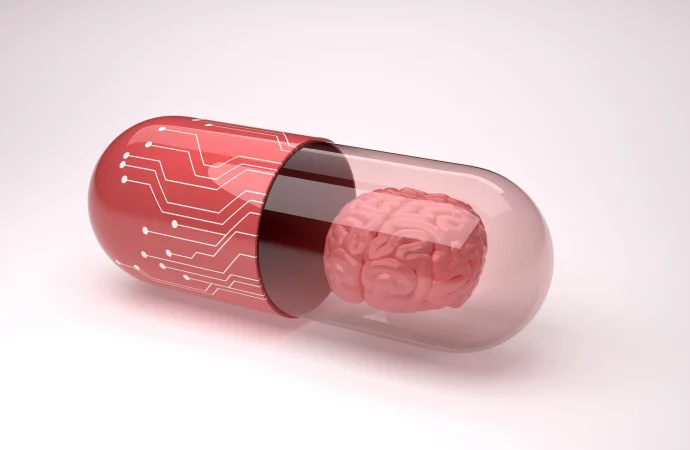Personalized medicine, once a futuristic concept, is now a reality reshaping the healthcare landscape. Advancements in Artificial Intelligence (AI) are playing a pivotal role in this transformation, revolutionizing how medical treatments are tailored to individual patients’ unique characteristics and needs. Understanding Personalized Medicine Personalized medicine involves customizing healthcare practices and treatments to fit each patient’s
Personalized medicine, once a futuristic concept, is now a reality reshaping the healthcare landscape. Advancements in Artificial Intelligence (AI) are playing a pivotal role in this transformation, revolutionizing how medical treatments are tailored to individual patients’ unique characteristics and needs.
Understanding Personalized Medicine

Image by : Yandex
Personalized medicine involves customizing healthcare practices and treatments to fit each patient’s genetic makeup, lifestyle, and environmental factors. This approach contrasts with the traditional one-size-fits-all model, offering more precise diagnoses, targeted therapies, and better outcomes.
AI in Genomic Sequencing
AI algorithms analyze vast genomic datasets swiftly and accurately, identifying genetic variations linked to diseases. This enables healthcare providers to predict disease risks, select appropriate treatments, and develop personalized prevention strategies based on individual genetic profiles.
Predictive Modeling for Treatment Outcomes
Using AI-driven predictive models, healthcare professionals can forecast how patients will respond to specific treatments. By considering patient demographics, medical history, and genetic data, AI enhances treatment planning, reduces trial and error, and improves treatment efficacy.
Enhancing Diagnostic Accuracy
AI-powered diagnostic tools leverage machine learning to interpret medical images, detect anomalies, and assist radiologists in identifying subtle signs of disease. This capability improves diagnostic accuracy, facilitates early detection, and enhances patient outcomes through timely interventions.
Virtual Health Assistants
AI-driven virtual health assistants provide personalized healthcare guidance, monitor patient vitals remotely, and offer real-time insights into health trends. These assistants empower patients to manage chronic conditions effectively and enable healthcare providers to deliver timely interventions.
Drug Discovery and Development
AI accelerates drug discovery by analyzing molecular structures, predicting drug interactions, and identifying potential drug candidates. This efficiency reduces research and development timelines, lowers costs, and facilitates the creation of targeted therapies tailored to individual patient needs.
Precision Oncology
In oncology, AI analyzes tumor genomics, patient data, and treatment outcomes to personalize cancer therapies. By identifying molecular targets and predicting drug responses, AI enhances precision in treatment selection, minimizes side effects, and improves overall survival rates.
Real-Time Health Monitoring

Image by : Yandex
Wearable devices equipped with AI algorithms monitor vital signs, activity levels, and physiological parameters continuously. This real-time data collection enables early detection of health issues, personalized feedback on lifestyle choices, and proactive healthcare management.
Ethical Considerations in AI-driven Medicine
As AI integrates deeper into healthcare, ethical considerations such as patient privacy, data security, and algorithm transparency become crucial. Balancing innovation with ethical standards ensures responsible deployment and equitable access to personalized medicine advancements.
The Future of Medicine Using AI
Looking ahead, AI’s role in personalized medicine is poised to expand with advancements in deep learning, natural language processing, and decentralized healthcare networks. These innovations promise to further personalize treatment strategies, improve patient outcomes, and redefine healthcare delivery models globally.
Conclusion
In conclusion, AI is driving profound innovations in personalized medicine, transforming healthcare practices from reactive to proactive, and revolutionizing patient care. By harnessing AI’s capabilities, healthcare providers can deliver more precise diagnoses, tailored treatments, and personalized healthcare experiences that improve quality of life and outcomes.
















